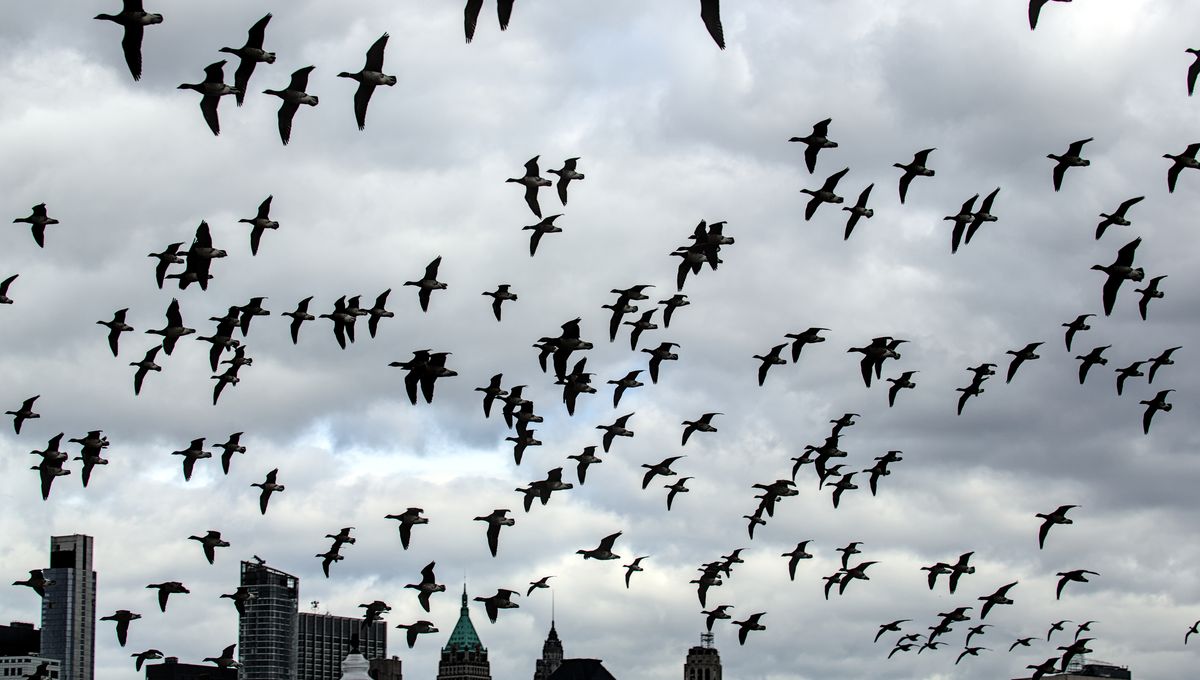
In what the study authors believe is the USA’s first large-scale assessment of avian flu in an urban bird population, a small number of wild birds in New York City have been found to be infected with the highly pathogenic H5N1 strain. While we typically consider the risk to humans to be greatest in rural areas, around settings such as poultry farms, the study highlights the need for awareness of other routes to exposure.
The study authors stress that the news is no cause for alarm, and that there’s no reason to believe the NYC public is at substantial risk. “It is important to mention that, because we found H5N1 in city birds, this does not signal the start of a human influenza pandemic. We know that H5N1 has been around in New York City for about two years and there have been no human cases reported,” said co-author Dr Christine Marizzi in a statement.
Indeed, local health authorities have been warning residents to steer clear of any birds that appear to be sick, and to report sightings of sick or dead birds for some time. This strain of H5N1 has been hitting the headlines in recent months after outbreaks in cattle on dairy farms in several states led to reports of humans and cats becoming infected.
Marizzi, who heads the New York City Virus Hunters Program, and the research team got the community involved in their project to get a better sense of whether and how the virus may be circulating in NYC’s urban bird population.
“Birds are key to finding out which influenza and other avian viruses are circulating in the New York City area, as well as important for understanding which ones can be dangerous to both other birds and humans,” Marizzi said. “And we need more eyes on the ground – that’s why community involvement is really critical.”
The program was born out of a collaboration between the Icahn School of Medicine at Mount Sinai, the Wild Bird Fund, and BioBus, an initiative that brings the lab to communities of students that have been historically underrepresented in science with the help of a converted school bus.
Local high school students work as paid interns with expert scientists to help mentor them. They’re given all the necessary protective gear to go out into the field and collect bird fecal samples, which they then help screen for viruses. Samples are also donated from animal welfare centers.
Between January 2022 and November 2023, the Virus Hunters gathered 1,927 samples. The H5N1 virus strain was picked up in samples from six individual birds, representing four different species: Canada geese (Branta canadensis), red-tailed hawks (Buteo jamaicensis), peregrine falcons (Falco peregrinus), and chickens (Gallus gallus domesticus).
Analysis showed that two different genotypes of H5N1 were present, and that both were a mixture of the 2.3.4.4b clade that’s been circulating in the US since winter 2021-22 and endemic North American strains. Many migratory birds stop over in New York during their long journeys, which creates the ideal opportunity for different virus strains to mix.
While the risk to the general public remains low, it’s still important for people to be aware that there are potential routes of transmission of avian flu even in urban areas, and that residents know how to protect themselves.
The message from Marizzi is that it’s usually best to steer clear of large groups of wild birds: “It’s smart to stay alert and stay away from wildlife. This also includes preventing your pets from getting in close contact with wildlife.”
The study is published in the Journal of Virology.
Source Link: Highly Pathogenic H5N1 Flu Found In New York City Wild Birds By Citizen Scientists